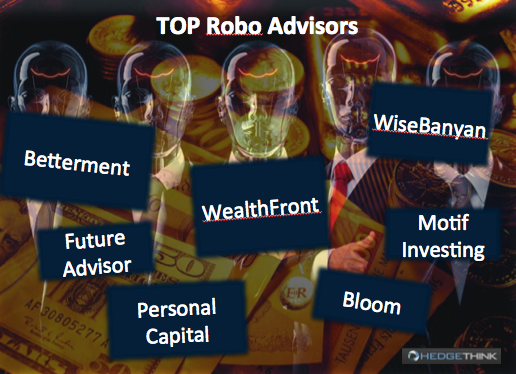Alternative investing platforms are changing the way equity is raised for start-ups, and business loans are granted for expansions at a dizzying pace. From the first online banking services offered in the 1980s to the rise of e-trading on the Internet, the online financial marketplace has evolved into a multi-billion-dollar industry. Although the term Fintech Financial Technology is applicable to everything from mobile payment services to money transfers and payday loans, entrepreneur fund-raising via online technology is posing the most significant challenge to banks on Wall Street and Main Street.
Clicks Versus Bricks
The conventional scenario of a visit to the local bank while armed with a detailed business plan, market analyses and pages of talking points in anticipation of a loan officers or investment bankers grilling and possible rejection used to mark the beginning of a months-long process of trying to raise funds for a new venture. By contrast, equity crowdfunding sites offer not only greater choice and application process savings but also a turnaround time of weeks sometimes less than three weeks and an exceptionally high approval rate. In Britain, close to 40 percent of small enterprise loan applications made to traditional banks were turned down as of second quarter 2014, while 100 percent of one online peer-to-peer lenders applicants were approved during the same period.
Pitching Without Borders
Just as Internet sales platforms allow sellers to promote products globally and buyers to peruse the vast electronic marketplace, borrowers can scan thousands of Fintech sites in search of funding promoted by investors eager to invest in technology start-ups, or other financial services offered by purveyors of credit card services, money transfer portals and encrypted payment exchanges. In the case of crowdfunding, entrepreneurial ideas get pitched from anywhere in the world, and deals are closed between parties who have never met in person. The funding or financial service provision itself is a cross-border transaction and is one that benefits the small enterprise in a manner previously enjoyed only by the multinationals.
Necessity the Mother of Innovation
According to one Fintech venture capitalist: Prior to 2008, it was accepted wisdom that if you didnt have a banking license, a massive balance sheet and a 300-year-old name you couldnt possibly play in this space. The financial crisis changed all that and its resultant fury of investors looking for greater innovation in the alternative investment sector. By harnessing the power of the Internet to effect peer-to-peer lending, finance and technology became lawfully wedded. But Fintechs growth is actually just beginning: Investment in Fintech start-ups is expected to reach $4 billion globally this year double the 2012 level (Source: Accenture Plc).
David draws on 20+ years’ experience in both legal practice and in business services delivery since his own call to the Bar in 1989. With several years in the startup environment, including as a co-founder in the legal tech space specifically, he brings a unique and timely perspective on the role of data, automation and artificial intelligence in the modern and efficient delivery of services for legal consumers. Having been both a corporate buyer of legal services and a services provider, he identifies the greater efficiency and value that can be achieved in legal operations for corporate buyers especially.
An attorney, David worked for law firms Pinsent Masons and Linklaters in London before moving to New York to join Credit Suisse. As CAO, he helped negotiate & execute the relocation of Credit Suisse into its new NYC global HQ. Subsequently, David directed major global outsourcing, shared sourcing, HR operations & process efficiency initiatives including the digitization of records, the global roll-out of PeopleSoft HRMS & Y2K. David has worked extensively in the UK, US, Philippines, India and China markets in the areas of data management, human resources and business process outsourcing.
Most recently, David has been successfully investing in and serving as an advisory board member of several legal services start-ups including a cloud-based solution for legal process automation and e-filing; and a technology solution for large-scale capture of court and other public data used for litigation analysis, among others.
David graduated from the University of Manchester with Honors in Law and Bar School (College of Legal Education) in London, and has been a member of Middle Temple since 1989. He is the founder and former Chairman of The Global Sourcing Council.
Member: Bar of England & Wales, ABA, NYCBA, ACC, DRI




































